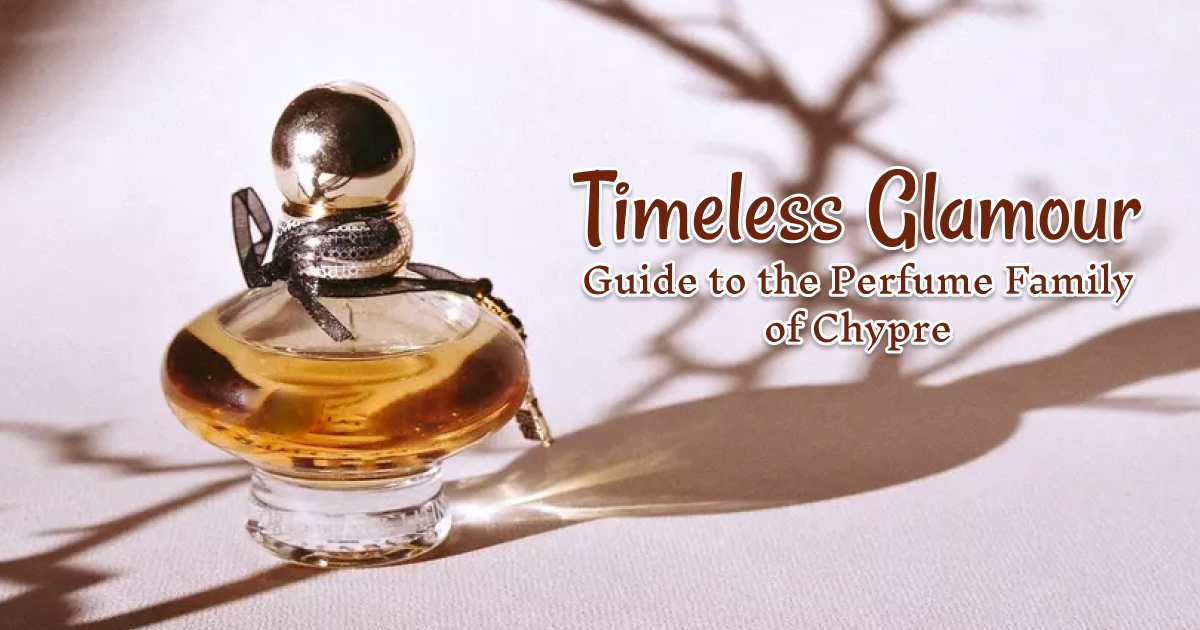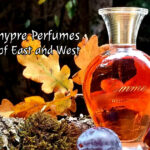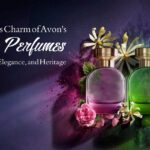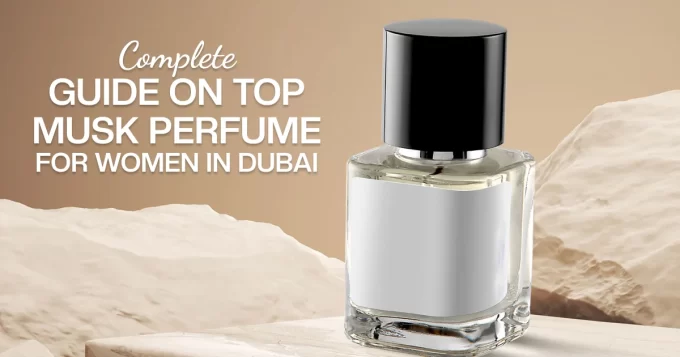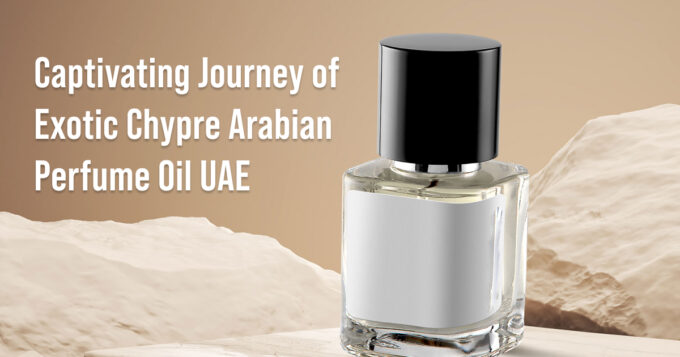Guide to the Perfume Family of Chypre
Chypre perfumes are one of the world’s oldest and most complex perfume families, ranking using durability and depth among the most beautiful, intricate fragrance types ever conceived. Balancing freshness with depth, timeless appeal, and complexity has allowed the essential character of these aromas to attract fragrance lovers for over a century.
It was there, on that Mediterranean island known for treasures rich with aromatic treasures, that inspiration for the “chypre” perfume category was born—sheep-rah in French.
Now, let’s walk down the memory lane within this post of our blog. This time we are going to tell you about the origins and specifics of Chypre perfumes, break down its signature composition, and then speak about why it has become a symbol of elegance and refinement for centuries. Moreover, we’ll provide you with some of the well-known Chypre perfumes and how modern spirits of re-composition develop with the roots of the classic Chypre family.
What is a Chypre Perfume?
A Chypre is a fragrance built on an existing smell structure, using light citrus openings, floral or spicy middles, and woody, mossy bases. The most distinctive feature of a chypre, however, is its dependence on oakmoss to provide the scent with that earthy, green undertone. It’s this stark contrast between lightness and darkness that gives Chypre fragrances their distinction.
A proper chypre accord is the classical combination of three primary characteristics combined.
Citrus: The composition starts cool and refreshing with citrusy top notes, which are commonly headlined with bergamot. Bergamot is a citrus fruit used to add the light and airy character of the perfume at its very onset.
Heart Floral or Spicy: Often heart accords in perfume will feature floral, for example, rose and jasmine, or it may be tied to the spicier aspects of cinnamon, giving it warmth and depth.
Woody and Mossy Base Oakmoss, patchouli: Here it is at the base that earthiness and grounding begin to start playing its part in a Chypre fragrance. Oakmoss gives it something like a leathery forest smell while patchouli, amber, and labdanum flesh it out and warm the fragrance.
It comes as no surprise that this intricate layering of citrus freshness, floral sweetness, and woody warmth lends a truly rich, multidimensional fragrance that unfolds on the skin with time. This is characteristic of Chypre perfumes since they are composed in a manner that changes with each day, revealing ever-new facets of their composition.

Chypre Origins
Perfumes in the style of Chypre have their roots in antique times, but the modern style of Chypre as it is known today was conceived with François Coty’s Chypre de Coty introduced to the perfume market in 1917. Drawing on the island of Cyprus’ aromatic riches, Coty’s inspiration shook the very foundations of the perfumery world and gave birth to a whole new family of fragrances.
The rich, earthy ripeness-softened freshness of bergamot, labdanum, patchouli, and oakmoss scents characterize Chypre de Coty. One of the earliest modern perfumes to successfully place citrus top notes alongside a woody, mossy base, Chypre de Coty established a standard that would develop into the defining features of the Chypre perfumes.
Instantly, Coty’s Chypre was a classic, inspiring generation after generation of perfumers to try their best to recapture the perfect harmony between citrus brightness and earthy depth. In its change of heart, the perfume Chypre itself has changed dramatically but remains remarkably consistent at its heart, with a sense of eternal elegance.
Signature Characteristics of Chypre Perfumes
However, what particularly sets chypres apart from others within fragrance families is their talent for balance between contrast: fresh and warm, light and deep, highly versatile and appealing to many. Some of the most distinguishing features defining chypre perfumes include the following:
1. Citrus freshness meets earthy warmth.
Chypre perfumes are so complex and rich in complexity due to the contrast between citrus top notes and the woody, mossy base. Bergamot brightens up in a refreshing opening, and then there’s oakmoss and patchouli for the deeper base notes, finishing earthy and grounded.
2. Long-lasting and Evolving
This is what makes perfumes in the Chypre family tend to last long and change on the skin. As the fragrance dries down, then different layers start coming off it, almost like a scent that changes all through the day. This is why Chypre perfumes are so popular-they are dynamically changing fragrances.
3. Timeless Sophistication
Chypre perfumes are complex and beautiful. In a rich structure and diversity in composition, they are people’s favorite fragrances for those preferring simple, refined scents. To wear a Chypre is to be in a world of timeless beauty.
The Modern Revival of Chypre Perfumes
Whereas the very formula of Chypres did not change much after its invention, perfumers were already able to revive the whole family of Chypres by creating ways to innovate and reinterpret. Nowadays, there are several different kinds of Chypre perfumes with their touch added to the original theme.
1. Floral Chypre
The middle note in perfumes under the category Floral Chypre is dominated by florals, either rose, jasmine, or ylang-ylang. This softens the earthiness of the bottom note and also lends a more romantic and feminine profile to the fragrance. Examples include Miss Dior by Christian Dior and Chanel No. 19, which combines florals with the classic Chypre base.
2. Fruity Chypre
Fruity Chypres add fruity top notes, such as peach, plum, or apple, to the scent. It grants the scent fresh, juicy qualities, with a more recent vintage appeal. One of the great classic examples of Fruity Chypre is Nina Ricci’s L’Air du Temps, where fruity notes are put together with the moist mossy base of Chypre.
3. Oriental Chypre
Oriental Chypre perfumes combine the rich, hot aroma of oriental perfumes with the classic Chypre composition. These are sensual, warm, and heavy fragrances, and not seldom come paired with traditional Chypre fragrance notes combined with the heavy smoky or spicy fragrances of amber and incense or else with vanilla. Luxury perfumes such as Mitsouko from Guerlain and Noir de Noir by Tom Ford fit perfectly into this category.
4. Green Chypre
For a more grassy, herbaceous aroma, choose Green Chypre fragrances featuring galbanum, ivy, or vetiver. Earthier and more outdoors in profile, with green, leafy notes atop the Chypre accord, these two green Chypres are among the most iconic. Two other iconic Green Chypres, evoking freshness and vibrant dynamism, are Chanel’s Cristalle and Estee Lauder’s Aliage.
Why Chypre Perfumes Remain Relevant Today
Chypre perfumes will find their way into the perfumery lexicon over a century based on the fact that, over time, it remains a versatile flavor. This is all about the fact that they have a complex, layered experience in terms of fragrance with every molecule being both classic and modern, appealing to those who appreciate the character of a scent.
Whether a Floral Chypre with royal blooms, a Fruity Chypre-full of fruitiness and succulence, or an Oriental Chypre with sensual richness, there simply is a Chypre perfume to fit your personality, your tastes, and well nearly any occasion.
What makes Chypre perfumes so very alluring is that they can make a good match for every one of your moods, even your settings, without losing their sophistication.
Conclusion:
Chypre perfumes are far from being only a family of fragrances; they are an embodiment of the sense of distinction, complexity, and eternal class. Unmatched in their ability to combine vivid citrus notes with deep woody depth, they propose a dynamic fragrance experience unfolding every day. Be you a newcomer or connoisseur in chypre perfumes, you’ll know this legendary family is going to add to your knowledge of the art of perfumery.


